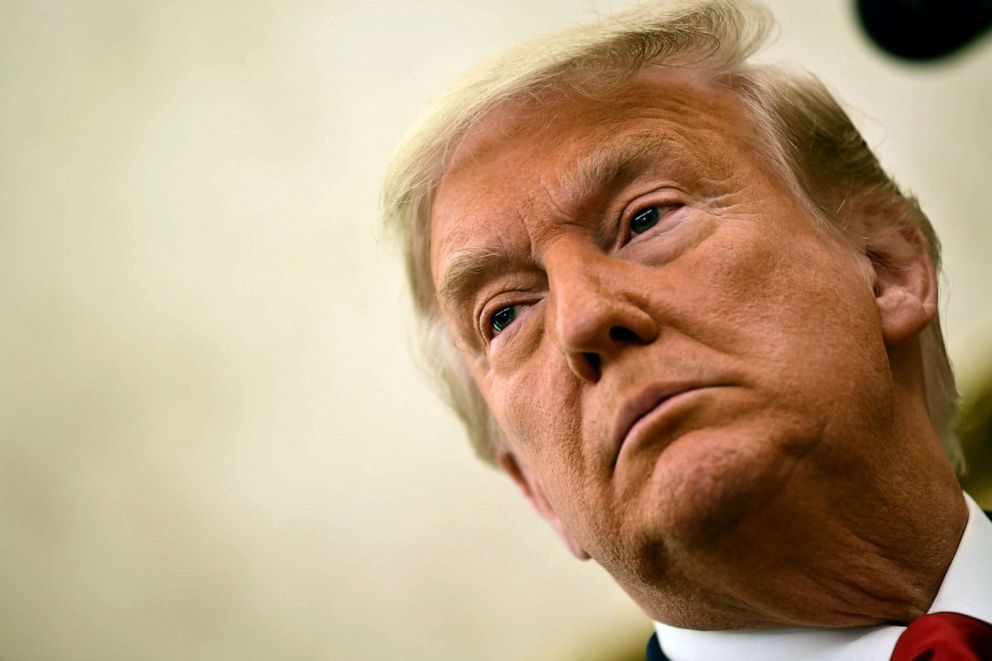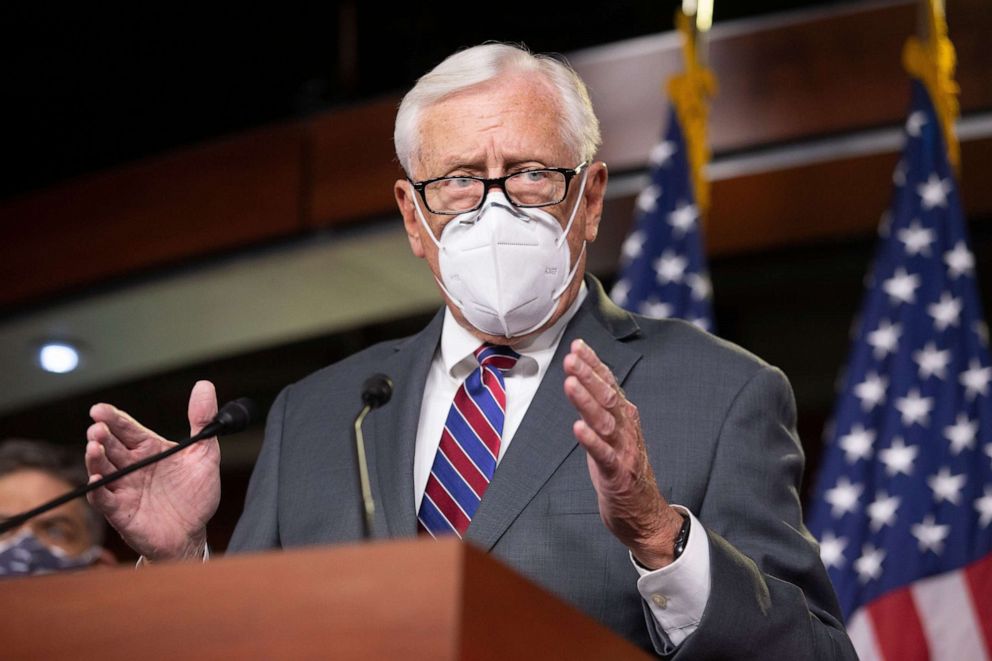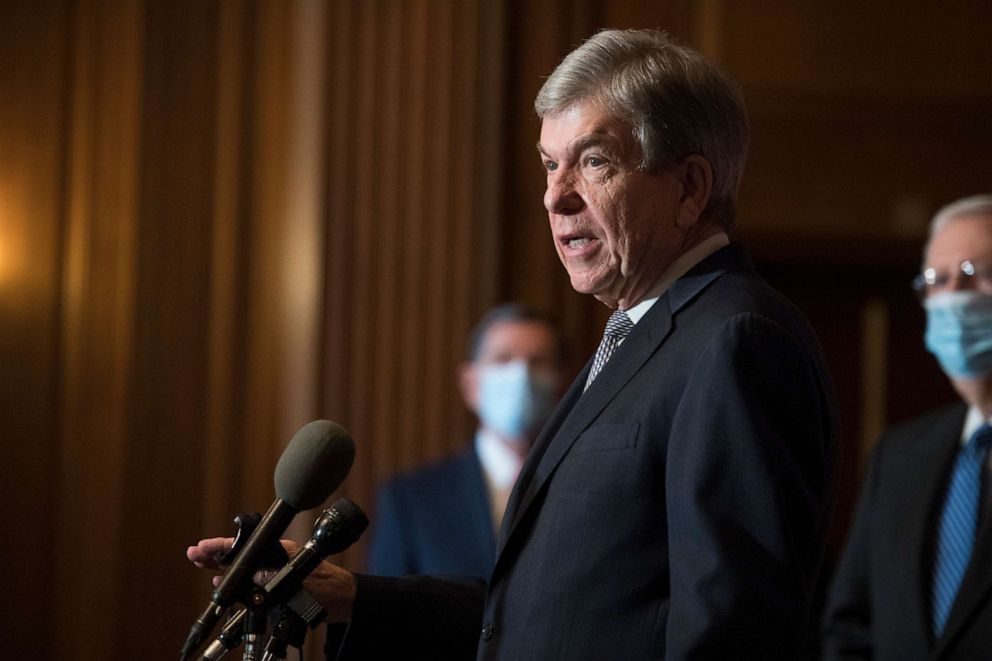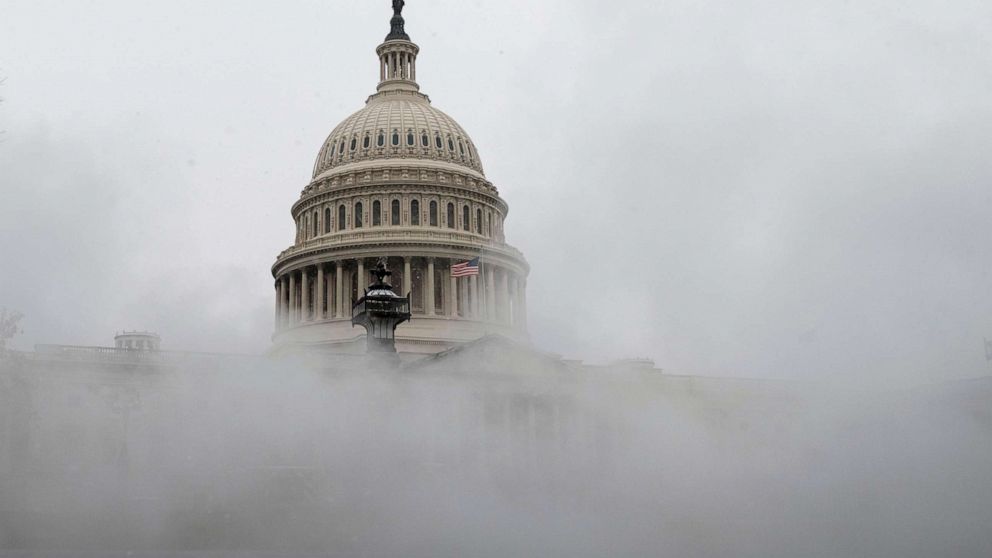Congress scrambles as Trump upends COVID-19 deal
Chaos and uncertainty loom over the holidays, and it’s unclear at this point if there will be a government shutdown on Monday at midnight after President Donald Trump demanded last-minute changes on a must-pass spending bill and COVID-19 relief package.
During remarks Tuesday night, Trump signaled he would not sign the bill, which was passed with overwhelming support late Monday, unless Congress included $2,000 direct checks to Americans.

The current legislation awaiting the president’s blessing would give $600 in stimulus payments to Americans making less than $75,000. It would also provide $300 in enhanced unemployment insurance benefits, nearly $300 billion for the small business loan program, and billions more in vaccine distribution, contact tracing and testing.
The bill took months to negotiate among Congressional leadership and was finalized just days before 12 million people are set to lose benefits if pandemic-era provisions to expand unemployment eligibility expire. Millions across the country face eviction if a federal moratorium expires at the end of the year.
The bill was attached to a must-pass $1.4 trillion omnibus spending deal that would fund the government through September 2021. A short-term funding bill is set to expire Monday night if Trump doesn't sign the package into law.
As of Thursday afternoon, the bill was still in the enrollment period and it had not yet been transmitted to the White House.
"I will be talking to the Speaker, to the members of the Democratic Caucus, to determine exactly how we want to move forward. But we're not going to let the government shut down, nor are we going to let the American people down, from our perspective," House Majority Leader Steny Hoyer, D-Md., said during a press conference on Capitol Hill Thursday.
House Democrats will consider options on another short-term funding bill and noted that House Speaker Nancy Pelosi is having ongoing discussions with Treasury Secretary Steven Mnuchin and the administration, Hoyer said.
Hoyer said he's hoping Trump comes to his senses before Monday and signs on the dotted line.
"So far, he has not said he's going to veto the bill. I hope he doesn't veto the bill. I hope he signs this bill," Hoyer said.
Asked if he thought tying the omnibus spending bill to the COVID-19 relief bill was a mistake, Hoyer said no.
"I may say perhaps the only mistake was believing the president and Secretary Mnuchin when we were told that the bill we passed would be signed by the president of the United States," Hoyer said.

During the press conference, an emotional Rep. Debbie Dingell, D-MI., slammed Trump for his last-minute antics that have resulted in delaying stimulus relief for hurting Americans.
"It is Christmas Eve. But it is not a silent night," Dingell said. "All is not calm, for too many, nothing is bright."
"And then the president, when we finally thought that we'd be able to give people help -- that's what people need, help! -- and be able to begin to continue to work on this in January, [he] doesn't give a damn about people. He threw more fear, he threw kerosene on a campfire!" Dingell said in a raised voice.
"I beg the president to know how many people in this country are scared, fearful ... hungry and that [we] must get a bill done so that we are helping Americans," Dingell said.
On Thursday, Trump was spotted at his golf club in West Palm Beach, Florida, where he is spending the Christmas holiday.
Democrats and Republicans alike are calling on Trump to sign the measure as is.
Sen. Roy Blunt, R-Mo., told reporters at the Capitol Thursday morning that he remains hopeful Trump will sign the bill in the coming days. If Trump doesn't sign the bill, Blunt said the path forward becomes "a lot more challenging."
"The best way out of this is for the president to sign the bill and I still hope that’s what he decides to do," Blunt said. “Let's hope the best way works -- the second-best way is a lot more challenging."
But, Blunt added, he has "no idea what the president plans to do."
The Senate is not expected to return to the Capitol until Tuesday, and Blunt said he's doubtful Senate Majority Leader Mitch McConnell will call members back in sooner. Still, he said, he thinks Trump will avert a shutdown.
"I believe we will not shut down," Blunt said. "I hope the president looks at this again and reaches that conclusion that the best thing to do is sign the bill."

Hoyer was on the House floor Thursday morning to request unanimous consent on a bill that would send $2,000 in stimulus checks to Americans.
The unanimous consent vote attempted to call Trump's bluff and force Republicans to go on the record for their opposition to increasing direct payments from $600 to $2,000.
After Hoyer made the unanimous consent request, he was notified by the chair that his request did not have clearance from House Minority Leader Kevin McCarthy and so his request was denied.
Just after the vote, Pelosi said in a statement that the House will hold a recorded vote on the floor on Monday on a standalone bill on the $2,000 checks, which will put Republicans officially on the record. On Monday, the House will also hold its veto override vote on the defense policy bill.
“Hopefully by then the president will have already signed the bipartisan and bicameral legislation to keep government open and to deliver coronavirus relief," Pelosi said in the statement.
Blunt was asked if he thought an effort to get $2,000 direct checks approved, if passed by the House next week, would get the necessary support in the Senate.
"It would not," Blunt said.
Separately, a GOP request to rollback U.S. aid to foreign countries, which is a part of the omnibus spending package and was requested in the president’s budget, was also denied on the floor because the bill did not have clearance from Democrats.
Blunt cautioned against reopening negotiations on any part of the omnibus spending bill.
"If you start opening that part of the bill up, it's hard to defend not opening the whole bill up. It took us a long time to get to where we are. I think reopening that bill would be a mistake," Blunt said.
Blunt said Trump's decisions in the final days of his administration are preventing Republicans from celebrating his many accomplishments.
"There’s a long list of positive things that we’d be talking about today if we weren’t talking about this," Blunt said. "And I think that would be to the president’s advantage if we were talking about his accomplishments rather than questioning decisions late in the administration."




